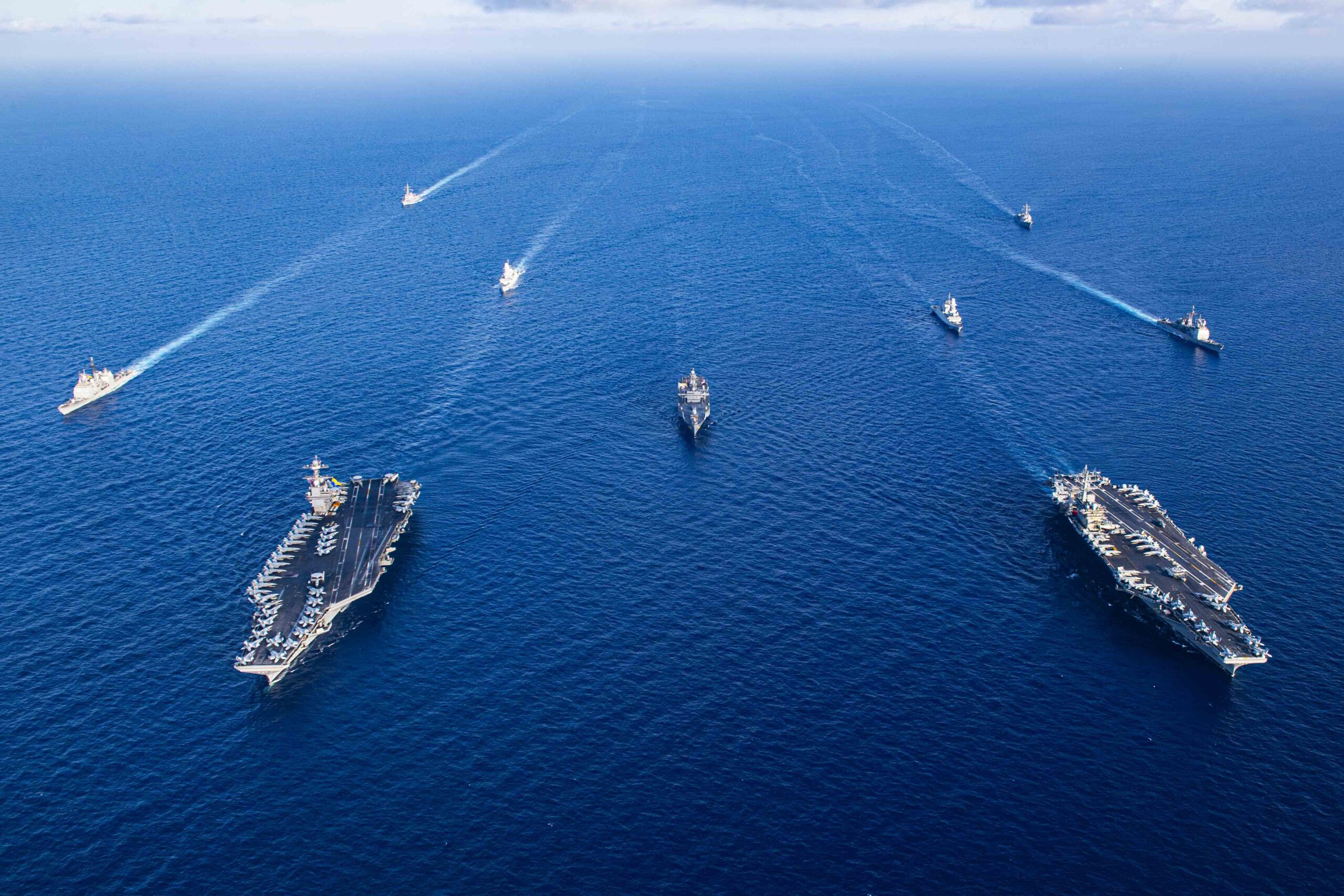Biden Continues to Imperil U.S. Troops in the Middle East
As the Israel-Palestine crisis twists and turns, Washington risks being borne back ceaselessly into the past. The post Biden Continues to Imperil U.S. Troops in the Middle East appeared first on The American Conservative.

Biden Continues to Imperil U.S. Troops in the Middle East
As the Israel-Palestine crisis twists and turns, Washington risks being borne back ceaselessly into the past.

“‘Hotel California’ should be the official song of the Biden administration,” former U.S. diplomat Aaron David Miller recently told the Washington Post. “You can check out any time you want, but you can never leave.” Miller, a negotiator in the Oslo Accords and the Israel–Jordan Peace Treaty, quoted the Eagles’ classic in reference to the Biden administration’s Middle East policy. As the U.S. looks to put the region in the rearview mirror after disasters in Iraq and Afghanistan, heightened American involvement in the Israel–Gaza war is causing a chain-reaction of military repositioning throughout the region.
In his State of the Union address, President Biden called the war in Gaza “heartbreaking.” While Biden claimed Israel has the right to defend itself, the president has grown increasingly frustrated with Israel’s prosecution of the war under Prime Minister Benjamin Netanyahu. As Palestinians in Gaza remain in dire need of food, water, medicine, shelter, and other basic goods, Biden announced he is “directing the U.S. military to lead an emergency mission to establish a temporary pier in the Mediterranean on the Gaza coast.”
“This temporary pier would enable a massive increase in the amount of humanitarian assistance getting into Gaza every day,” the president claimed, while adding that “no U.S. boots will be on the ground.”
In the day that followed, however, reports clarified that while the undertaking might not put boots on the ground in Gaza, the construction of the floating pier would require more than 1,000 U.S. troops right off the coast. The pier could take approximately two months to build.
But it’s not just 1,000 U.S. troops that have made their way to the eastern shores of the Mediterranean. According to the Washington Post, the Biden administration has been moving assets throughout the region since Hamas’ brutal attack on Israel last October. The primary objective of the initial repositioning was to deter Hezbollah from opening a new front in the war with Israel from Lebanon. Two aircraft carriers, the USS Dwight D. Eisenhower and the USS Gerald R. Ford, each with a 5,000-member crew, made their way to the Middle East. So too did more air defense systems, a squadron of F-16s, and ships from the Bataan amphibious ready group.
In March, as the Biden administration planned its next steps and sought to broker a ceasefire, the Army dispatched several ships, such as the USAV SP4 James A. Loux, the USAV Monterrey, USAV Matamoros, and USAV Wilson Wharf, from Virginia to assist in the pier’s construction. The crews make up part of the Army’s 500-soldier commitment to the pier’s construction.
As the ships departed, Army Brig. Gen. Brad Hinson told members of the media, “We will not be on the shore but we will be on the pier and that pier can extend anywhere out from shore from 800 feet up to 2000 feet.”
On land, there has not been a significant increase in America’s footprint in the region since the Israel–Gaza war began. Although America’s wars in the Middle East have formally ended, 45,000 pairs of boots remain on the ground there. An estimated 13,500 troops are stationed in Kuwait, 9,000 in Bahrain, 8,000 in Qatar, 3,500 in the UAE, 3,000 in Jordan, 2,700 in Saudi Arabia, still 2,500 in Iraq, 2,000 in Turkey, 900 remain in Syria, and another few hundred are stationed in Oman. Just under an additional 1,000 troops were deployed to the region in October in response to the war in Gaza, including “a Terminal High Altitude Area Defense battery from Fort Bliss Texas, Patriot batteries from Fort Sill, Oklahoma, Patriot and Avenger batteries from Fort Liberty, North Carolina, and associated air defense headquarters elements from Fort Bliss and Fort Cavazos, Texas,” according to Pentagon spokesman Brig. Gen. Patrick Ryder.
Admittedly, the 45,000 troops deployed throughout the region is a far cry from the 160,000 troops deployed to Iraq and the 100,000 in Afghanistan during the height of the war on terror, but 45,000 landed and an unknown number of troops at sea, is an awful lot for a nation supposedly at peace.
“After 20 years of forever wars in the Middle East, we should we be trying to find ways to extricate ourselves from this part of the world just like we did with the Trump-Biden withdrawal from Afghanistan,” William Ruger, President of the American Institute for Economic Research and former Trump nominee for U.S. ambassador to Afghanistan, told The American Conservative. “It seems like policymakers imbued with a kind of primacist worldview are unwilling to restrain themselves and appreciate that we need to be prioritizing Asia over other regions of the world.”
Attacks on American troops in the region thus far have not caused the Biden administration, or the hawkish establishment in Washington, to question whether or not the American empire is still overextended in the Middle East. On January 28, three Army Reserve soldiers perished in a drone attack on the Tower 22 military installation in Jordan near the borders of Syria and Iraq. Forty more were injured. Over a four-month span, from October 2023 to February 2024, U.S. troops in the region have come under attack more than 160 times, injuring 80 more soldiers. Overextension has created a soft underbelly for Islamists and militants to slash, all the while risking further escalation via U.S. involvement. And U.S. strikes on the suspected perpetrators have done little to deter further action, such as U.S. strikes on Houthi positions in Yemen.
“The last time the United States inserted itself directly into a conflict between the Israelis and various Palestinian factions, nearly 250 U.S. Marines, sailors, and soldiers died in Lebanon 40 years ago,” Dan Caldwell, Public Policy Advisor for Defense Priorities, told TAC. “The move by the Biden Administration to establish this pier unnecessarily risks American lives and opens the door to the United States getting more deeply involved in the conflict in a way that doesn’t benefit either the United States or the Israelis. I also worry that this could lead to yet another permanent commitment in the Middle East at a time when we need to be deprioritizing the region.”
“Clearly Americans are both sympathetic to the need of Israel to create security for itself after October 7, but they also, I think, are worried about the plight of innocent people in Gaza,” Ruger said. “Diplomacy seems like a better answer than creating a situation that could lead to more Americans being in harm’s way.”
The post Biden Continues to Imperil U.S. Troops in the Middle East appeared first on The American Conservative.
What's Your Reaction?















